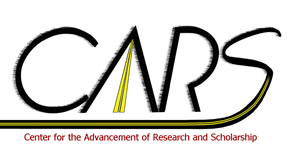Poster: Reflecting on Reading Miscues with English Language Learners
Location
Moakley Atrium
Start Time
12-5-2016 4:00 PM
End Time
12-5-2016 5:00 PM
Description
This study used a case study approach to see how six adolescent English language learners (ELLs) of varying English proficiency levels and linguistic backgrounds responded to four sessions of Retrospective Miscue Analysis (RMA; Goodman & Marek, 1996). RMA has been shown to increase adult and middle school struggling readers’ self-confidence and help them conceive of the reading process as a meaning-making endeavor (Goodman, & Marek, 1996; Marek, 1987). Analysis of baseline and post-RMA reading assessments suggests that the ELL participants demonstrated minimal change in comprehension of leveled passages, rate of miscues and fluency (correct words per minute) as a result of RMA. Post-intervention survey questions suggest ELLs enjoyed the RMA activities and gained confidence in their second language reading skills. Additionally, students’ reflections suggest sources of miscues unique to ELLs, including previous instruction in the home country, challenges in pronouncing the target language and transfer of decoding skills from other known foreign languages. Recommendations for use of RMA protocol will be provided.
Poster: Reflecting on Reading Miscues with English Language Learners
Moakley Atrium
This study used a case study approach to see how six adolescent English language learners (ELLs) of varying English proficiency levels and linguistic backgrounds responded to four sessions of Retrospective Miscue Analysis (RMA; Goodman & Marek, 1996). RMA has been shown to increase adult and middle school struggling readers’ self-confidence and help them conceive of the reading process as a meaning-making endeavor (Goodman, & Marek, 1996; Marek, 1987). Analysis of baseline and post-RMA reading assessments suggests that the ELL participants demonstrated minimal change in comprehension of leveled passages, rate of miscues and fluency (correct words per minute) as a result of RMA. Post-intervention survey questions suggest ELLs enjoyed the RMA activities and gained confidence in their second language reading skills. Additionally, students’ reflections suggest sources of miscues unique to ELLs, including previous instruction in the home country, challenges in pronouncing the target language and transfer of decoding skills from other known foreign languages. Recommendations for use of RMA protocol will be provided.
